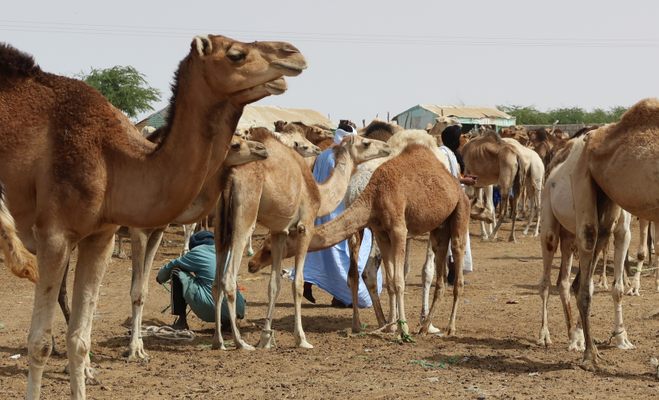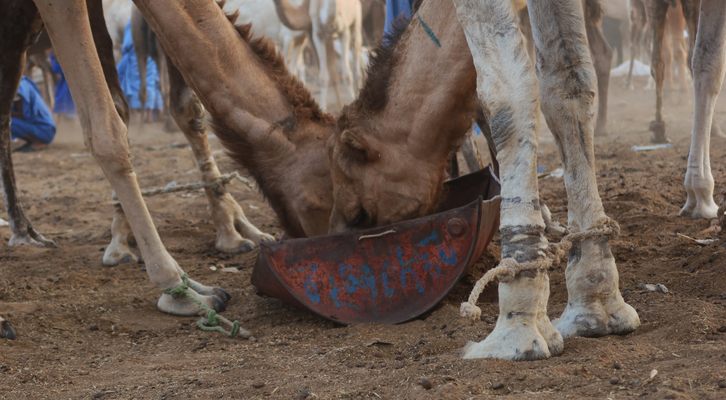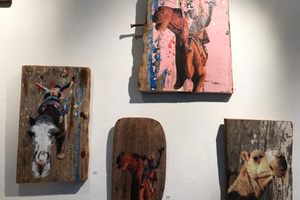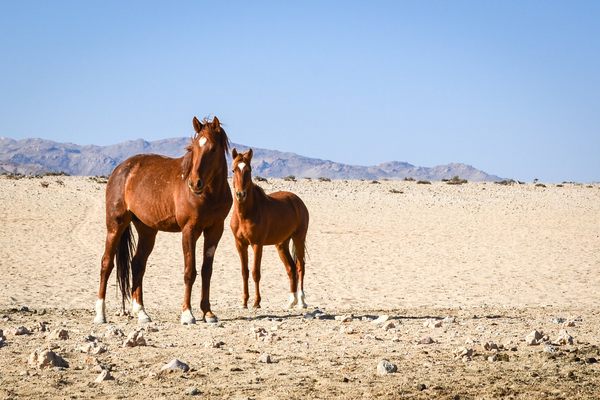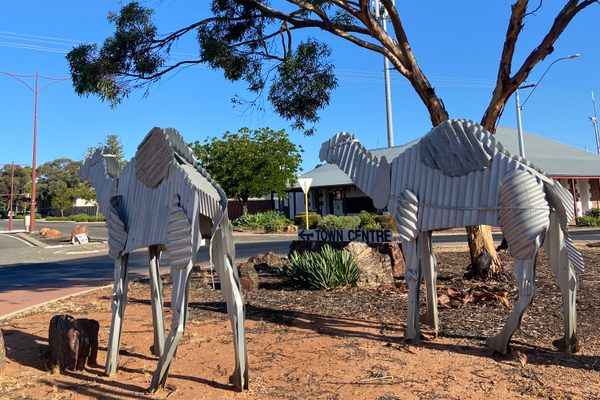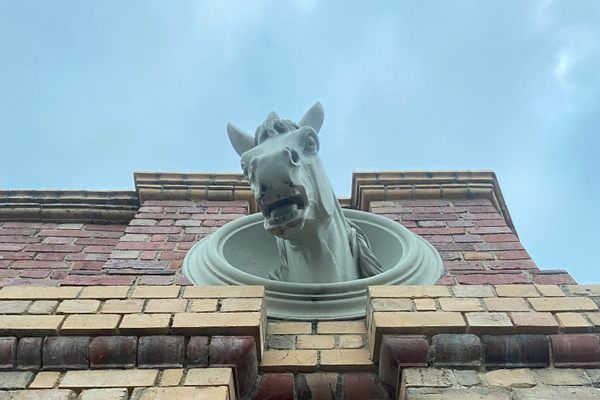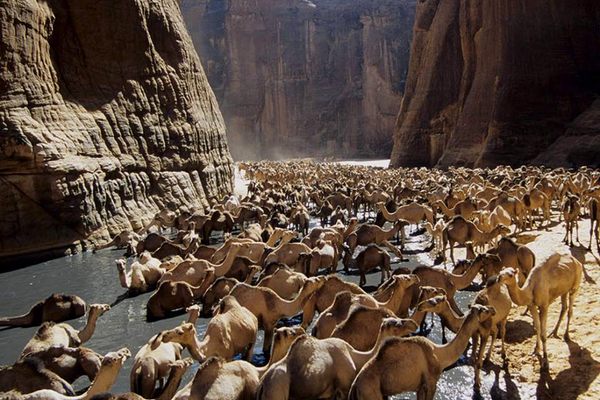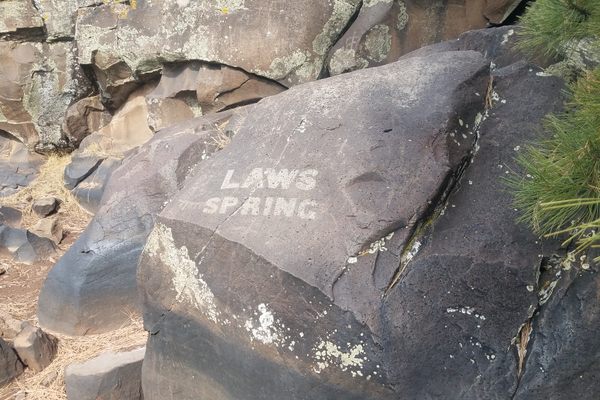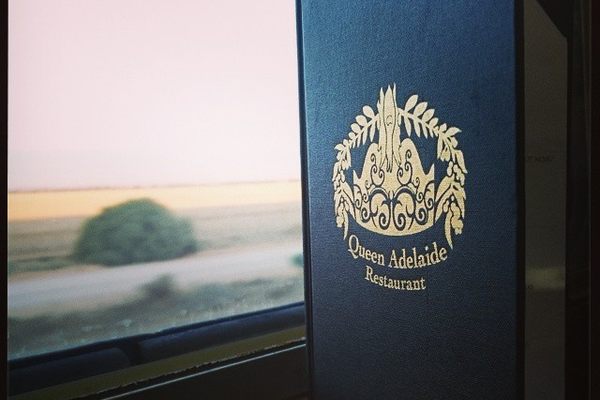About
Mauritania is home to the second-largest camel market in Africa (the largest is located in Sudan). Fourteen kilometers out of Nouakchott, along Road N3 heading east, the hustle and bustle of the city starts dying out. The buildings quickly thin out, and the atmosphere becomes unmistakably more rural. It is in this urban/rural liminal space that the Camel Market is located.
The site is easily recognizable. Gnarly branches form uneven but effective pens that stretch beyond what the eye can see. A layer of dust lingers permanently, and it simultaneously revels and conceals at irregular intervals. And thousands of camels are lying on the ground, fighting to exert dominance, pushing and shoving at feeding time, slowly moving along, or fast moving along, or not moving along at all, just staring at you.
Unfortunately, there is no vantage point that can offer a comprehensive view of the market. The only way to see it is to meander through the livestock—mainly camels, but no shortage of cows, goats, or donkeys. The sea of camels is neatly (but not obviously, to unfamiliar eyes) divided into herds, each belonging to one of the many herders that can be seen roaming around the expanse in their blue boubou (traditional tunic).
Finding out how much a camel is can be a challenge. First of all, herders may think that you are interested in buying one, which would prompt overinflated offers. And second, it may invite herders to boast and share with you the highest price they ever managed to collect for a camel. To compound the mystery, a camel’s price varies according to factors such as age, gender, size, weight, and aesthetic beauty. And this, of course, depends on what the camel is bought for—breeding, racing, or slaughtering. Upon lengthy investigation, it turned out that a healthy camel that is usually bought as a present (a common tradition in Mauritania) and does not excel in any of the aforementioned variables would go for about 850USD (as of 2023).
Related Tags
Know Before You Go
This is not a tourist attraction. Visitors are tolerated but, you should mind your step, making sure that you are not in anyone’s way—especially the camels. Be inobtrusive and culturally sensitive, and you may be rewarded with an informative chat with the local traders.
Community Contributors
Added By
Published
May 26, 2023
